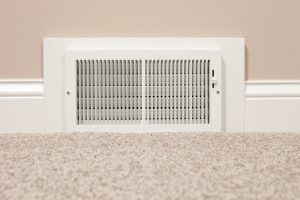 With the extreme variables we have in our weather throughout the year, it’s no secret that you’d like to do everything you can to lower your energy bills. The good news is, you don’t have to decrease your energy usage in order to do that. In fact, there are some simple steps you can take to boost HVAC efficiency, whether we’re talking about your heater or your air conditioner.
With the extreme variables we have in our weather throughout the year, it’s no secret that you’d like to do everything you can to lower your energy bills. The good news is, you don’t have to decrease your energy usage in order to do that. In fact, there are some simple steps you can take to boost HVAC efficiency, whether we’re talking about your heater or your air conditioner.
Use Your Curtains Wisely
You probably already know that in the summertime you should keep your curtains and blinds closed to keep the sun out. This keeps it cooler in the house, after all. But what about winter time? Instead of keeping those curtains closed, open them up! Particularly the curtains and blinds on your south-facing windows. This will warm the home up using radiant heat, and then your heater will run less—and therefore cost less.
Same Goes for Your Ceiling Fans!
Ceiling fans are another component of the home that most people think about in the summer, but not the winter.
Did you know there’s a switch that reverses the direction of the fan blades? Many homeowners don’t know this, and if they do, they don’t know the purpose. Reversing the fan blades helps distribute warm air, reducing your reliance on the heating system. For more seasonal tips, check out 3 tips for improving heating efficiency.
Well, the point is that in reverse, the fan blades pull down warm air, making you feel warmer, and you’re able to adjust the thermostat accordingly.
Program the Thermostat
Setting the right temperature is crucial to maintaining or improving HVAC efficiency. The ideal setting in the wintertime is 68°F (or lower, when the home isn’t occupied or when the family is sleeping). In the summertime, most people are comfortable at 78°F. Again, this can be adjusted to account for nobody being home, or for when you’re sleeping.
Check and Replace Air Filters
Many homeowners assume the air filters that come standard with their HVAC systems are in place to protect the home’s indoor air quality. Their primary function, however, is to protect the interior components of the HVAC system from dust and debris. Learn how a dirty air filter can damage your heater and why regular replacement is key to maintaining system efficiency. They certainly don’t hurt indoor air quality, but their actual purpose is to protect the interior components of the HVAC systems themselves from dirt, dust, and other debris.
Depending on the type of air filters you have and the level of contaminants in your home, you should change the air filters every 1–3 months.
Seal Your Ductwork!
We don’t mean you should do this on your own. Rather, you should contact a trained HVAC professional, such as a member of our team, to have your ductwork checked for leaks or other damage. If you’re considering a broader upgrade, explore when it’s time for an HVAC upgrade to determine how enhancements like duct sealing can improve efficiency and lower energy costs. Leaky ductwork can account for up to 30% of lost air—and that is conditioned air, which you’re paying for!
And no, store-bought duct tape won’t do the trick. This inappropriately named tape actually becomes brittle with temperature fluctuations and will start chipping and peeling off the ductwork within a few months or sooner. You need a professional to come in with special mastic sealant to do the job.
The above tips are just a few ways to boost HVAC efficiency. Don’t hesitate to reach out to our team for more great advice.
For expert Lincoln, CA heating and air conditioning services, contact Sierra Pacific Home & Comfort, Inc. Just look for “The Guys in the Big Red Trucks”!
